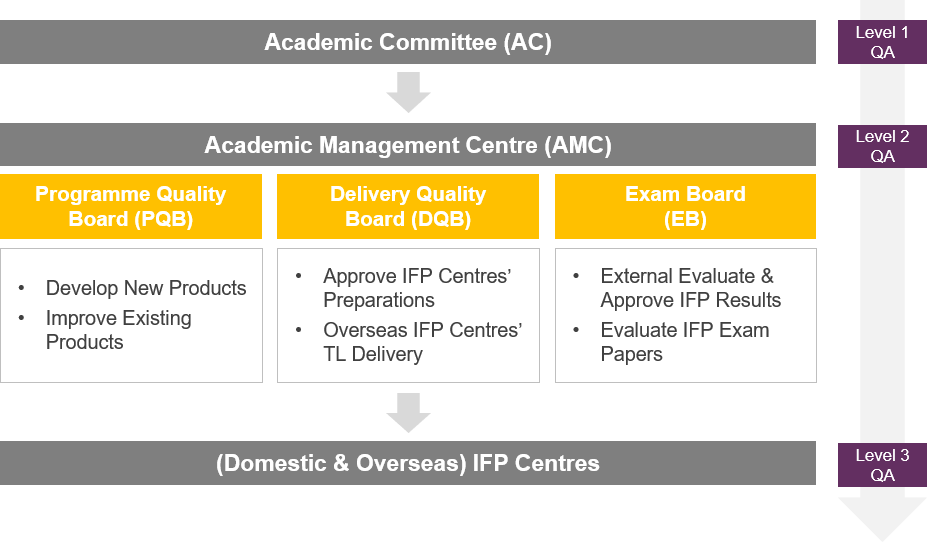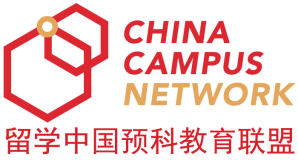China Campus Network Find a CCN Programme IFP Academic Courses
IFP1-N
IFP Academic Courses (For Chinese-Taught)
IFP Academic Courses are delivered to international students in and out of China at CCN IFP Centres, which have been strictly approved by CCN Academic Committee in accordance with CCN IFP Quality Assurance Policy and Procedure.

IFP Learning Outcomes

To achieve higher level in Chinese language, especially that associated with academic studies

To reduce the gap in subject knowledge between different educational systems

To get familiar and prepared with the ways of study in Chinese universities

To achieve higher level in Chinese language, especially that associated with academic studies

Streams
There are four streams available within IFP, leading to a wide range of choices for degree studies:

- International Economics & Trade
- Business Administration
- Finance
- Accounting
- Marketing
- …

- Literature
- Education
- Law
- Sociology
- History
- Media
- ….

- Mathematics Studies
- Physics Studies
- Chemistry
- Biological Studies
- …

- Computer Science
- Civil Engineering
- Biomedical Engineering
- Mechanical Engineering
- Electronic Engineering
- Architecture
- …

Curriculum
The IFP academic courses are offered for both IFP for Undergraduate Studies (IFP UG) and IFP for Postgraduate Studies (IFP PG):
In IFP UG, there are three categories of courses:
- Chinese for Academic Purposes (CAP)
- High School Subjects (HSS)
- Pre-University Subjects (Pre-U)
In IFP PG, there are two categories of courses:
- Chinese for Academic Purposes (CAP)
- Pre-University Subject (Pre-U)
Chinese for Academic Purposes (CAP) typically consists of General Chinese (GC) and Chinese for Subject Purposes (CSP).


Academic Calendars
For Full-Time Students:
Both IFP1-N UG and IFP1-N PG are available in three standard routes, which apply to all the streams. The standard schedule of Academic Year is shown below:
Route A:
- 36 teaching weeks
- 1080 academic hours
- September – July
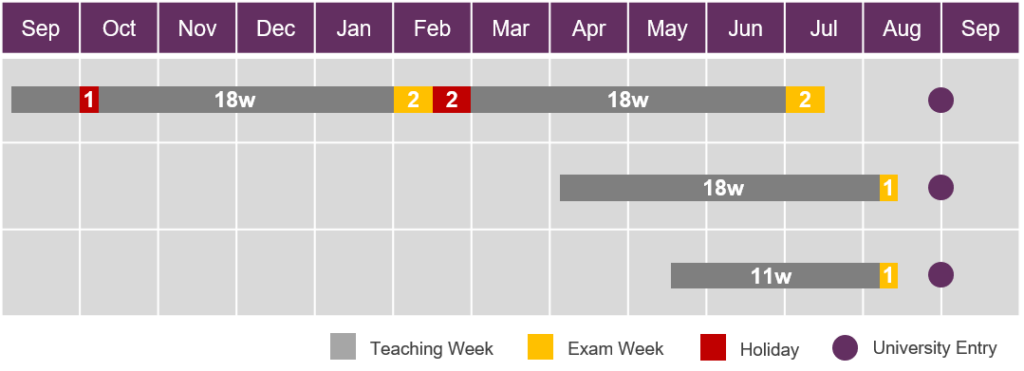
Route B:
- 18 teaching weeks
- 540 academic hours
- April – August
Route C:
- 11 teaching weeks
- 330 academic hours
- May – August

For Part-Time Students:

Assessment
A student’s IFP result is defined by the final score of EACH subject.
In order to graduate from IFP1-N, a student’s IFP result must achieve at least 60% in the final score of Chinese for Academic Purposes (the integration of General Chinese and Chinese for Subject Purposes) , and the Average of the final score of all subjects.
The final score of EACH subject is based upon formative and summative evaluations:
- Attendance performance of EACH class sessions (10%)
- Standard Monthly Exams (20%)
- Mid-term & Term-end Exams (20%)
- Final Graduation Exam(50%)
All exams are computer-based through the online assessment platform of CCN Digital Campus.
TOTAL: 100%
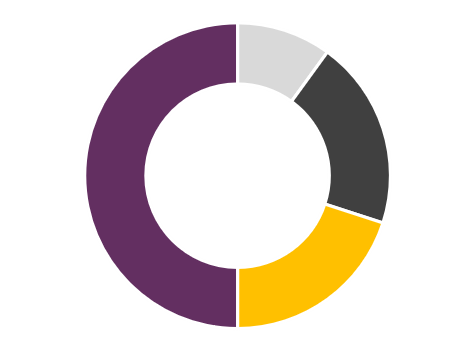
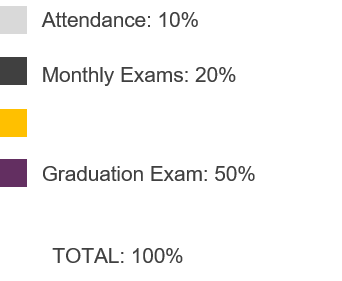
Internal Marking & External Moderation
Following standard QA procedure, IFP Graduation Exam will be internally marked by IFP centres and then externally moderated by external Exam Board (EB) experts before results are final and released to students and to universities for Admissions and Scholarships purposes.
The EB experts will carry out a comprehensive review of the quality of the IFP Graduation Exam, including the quality of the exam paper, the quality of exam delivery of all IFP centres, and the quality of the exam results through double marking, based on which EB experts will do the external moderations on IFP graduation exam results.
EB External Moderation is a fundamental insurance for the fairness and validity of IFP assessment.

Entry Requirements
Any students who have acquired basic education qualification and passed required obligatory subjects for their different targeted stream, can choose to apply for different routes of CCN IFP programmes based on their Chinese language level.
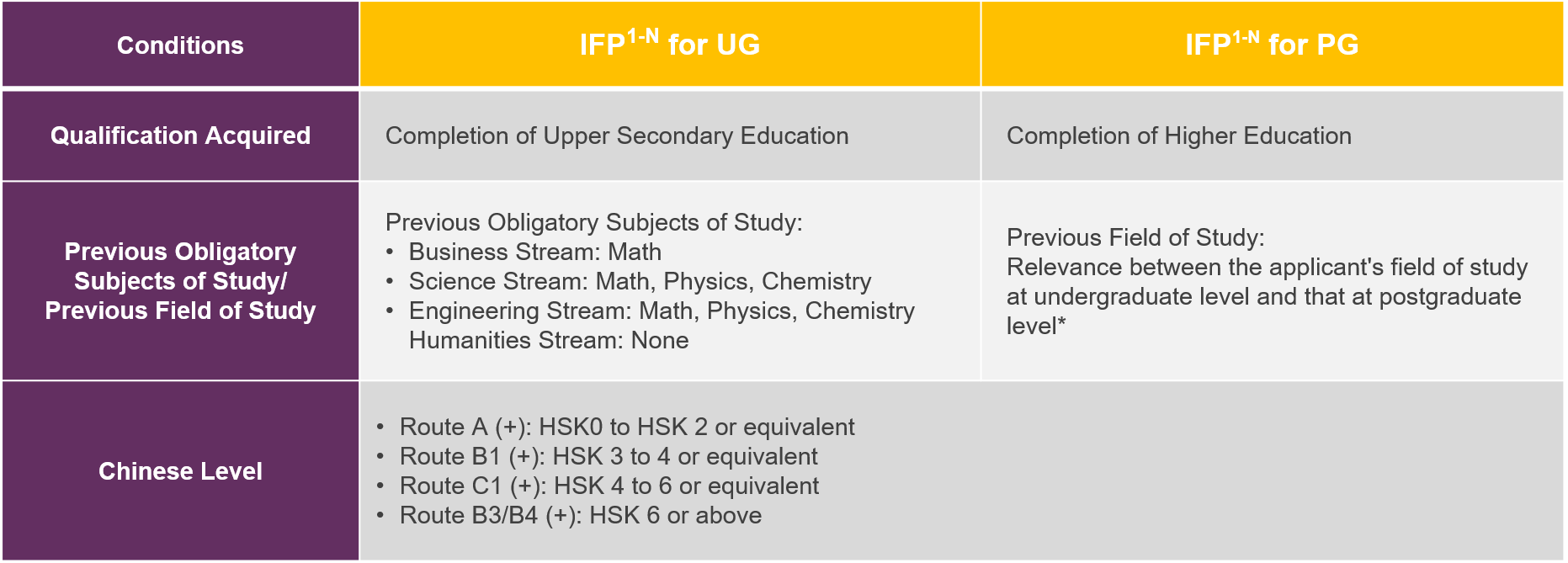

Entry Requirements for IFP1-N UG
- Basic requirements;
- Academic and linguistic requirements.
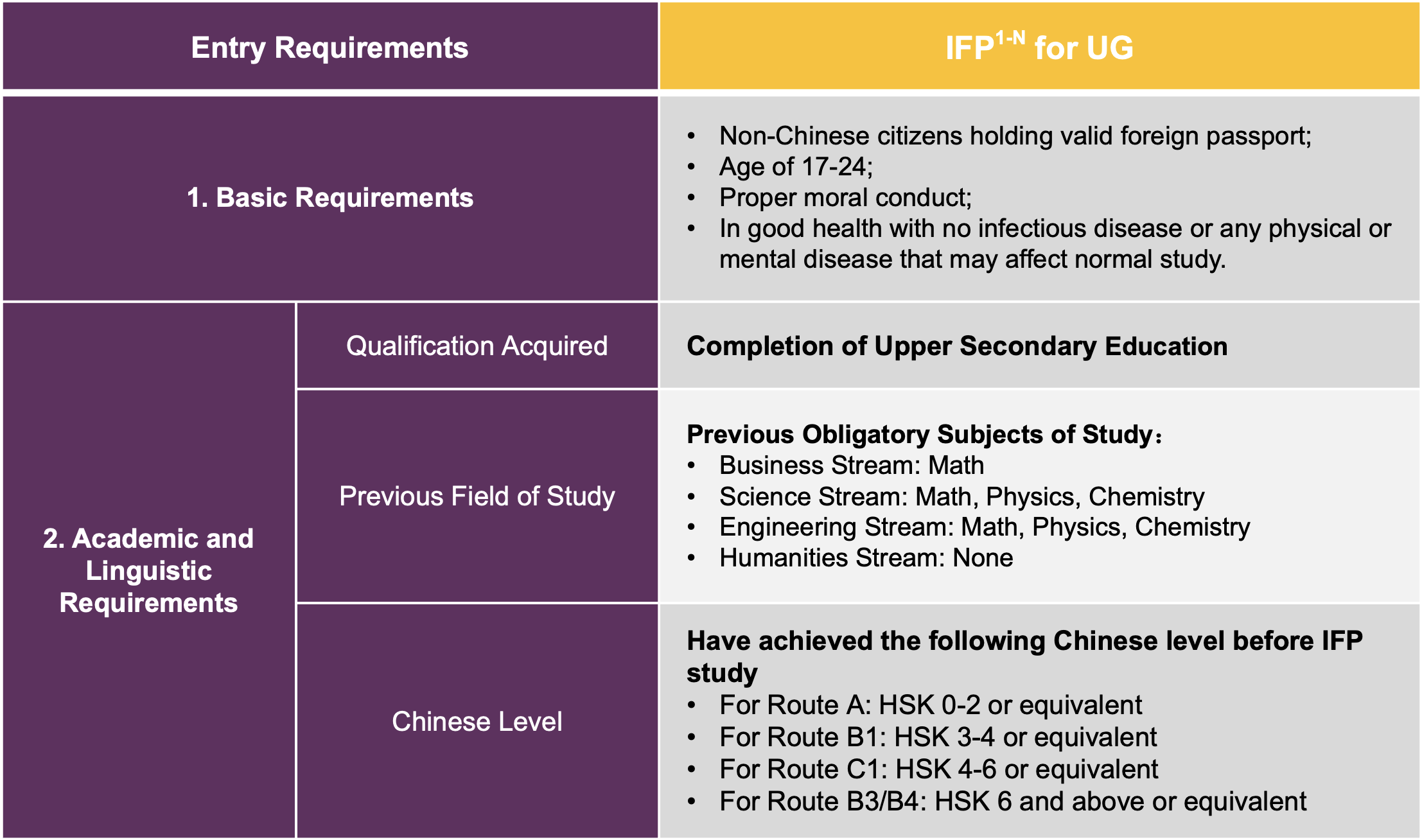
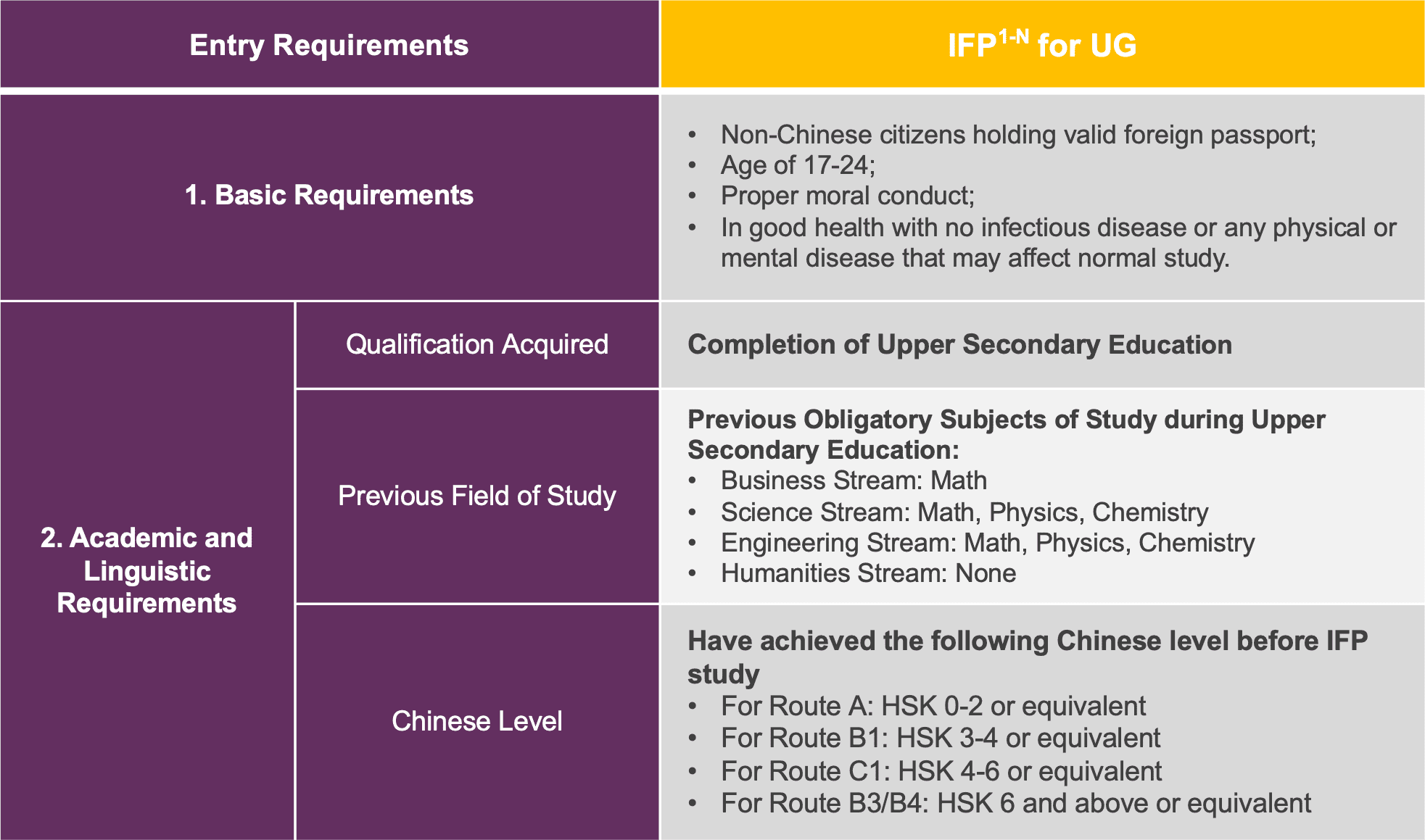

Entry Requirements for IFP1-N PG
- Basic requirements;
- Academic and linguistic requirements.
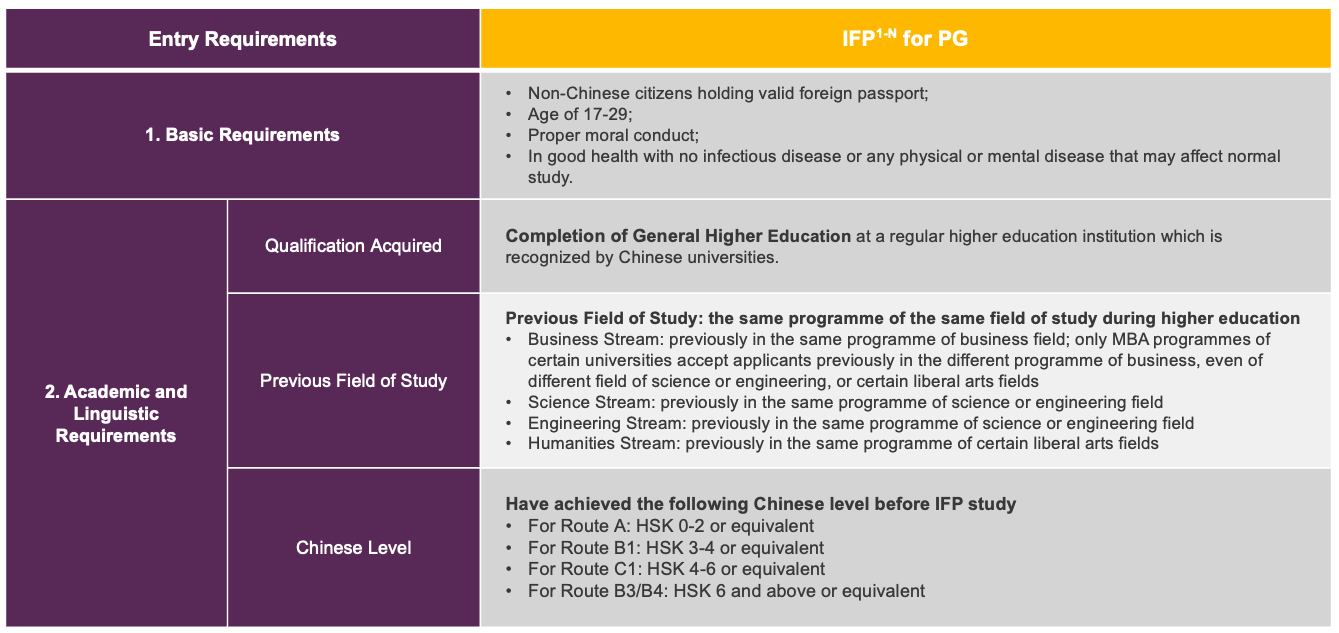

CCN Academic Committee & Quality Assurance
As the highest authority for CCN academic affairs, Academic Committee (AC) is the decision-making body for CCN academic strategies, academic criteria, programme approval, quality assurance, etc.
Functions & Responsibilities
Internal Marking & External Moderation
- Instruct CCN Academic Management Centre (AMC) in the development and review of the CCN Academic Quality Assurance System (QA System).
- Review and approve the new academic programmes (framework, syllabi, and teaching materials, etc.)
- Instruct CCN AMC to evaluate the delivery quality of IFP programmes at each IFP centre.
- Instruct CCN AMC to evaluate the quality of IFP exam implementation and results of each IFP centre.
- Provide advice on a variety of important academic issues.
Quality Assurance (QA)
Academic QA System has been established by CCN to set the academic quality standards for IFP and to ensure that CCN International Foundation Centres adhere to these standards in the delivery of IFP.
CCN QA System consists of three implementing bodies: the CCN International Foundation Programme Centre, the Academic Management Centre (AMC) and the Academic Committee (AC); each under the supervision of its parent body in a bottom-up order.
